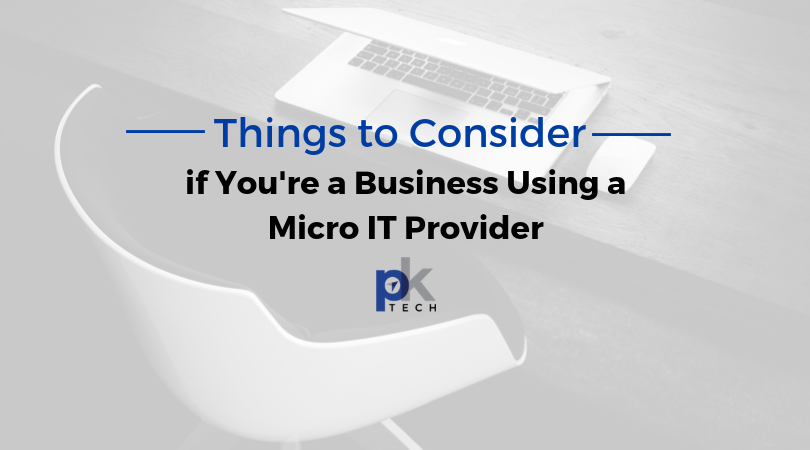How to Streamline Email Signatures In Your Small Business
Have you ever received an email from someone and been impressed by their title and signature tagline? You likely just experienced a business that has...
3 min read
Megan Schutz : Updated on November 20, 2024

Like many small businesses, you’ve likely started out using a friend or family member, individual contractor, micro-sized IT provider, or depended on your own skills to help setup and support your IT systems.
As you’ve grown, so have your IT needs.
These are all signs that you’ve outgrown your current IT provider. If you’re like many of the prospective businesses that we meet with, you’re using an individual or micro-sized IT provider comprised of a handful of employees and/or contractors.
As you can see, it’s important to assess the risks of doing business with micro providers and individuals offering IT services. Reach out to us if you would like to discuss your situation.
To contact PK Tech, click here.

Have you ever received an email from someone and been impressed by their title and signature tagline? You likely just experienced a business that has...

You’ve likely heard about the tariffs on goods from China in the news. US consumers and business are already seeing the effects. The exact structure...

Like many of us, you’ve probably worried about what it would be like to get your identity or private information stolen. You’re careful with your...